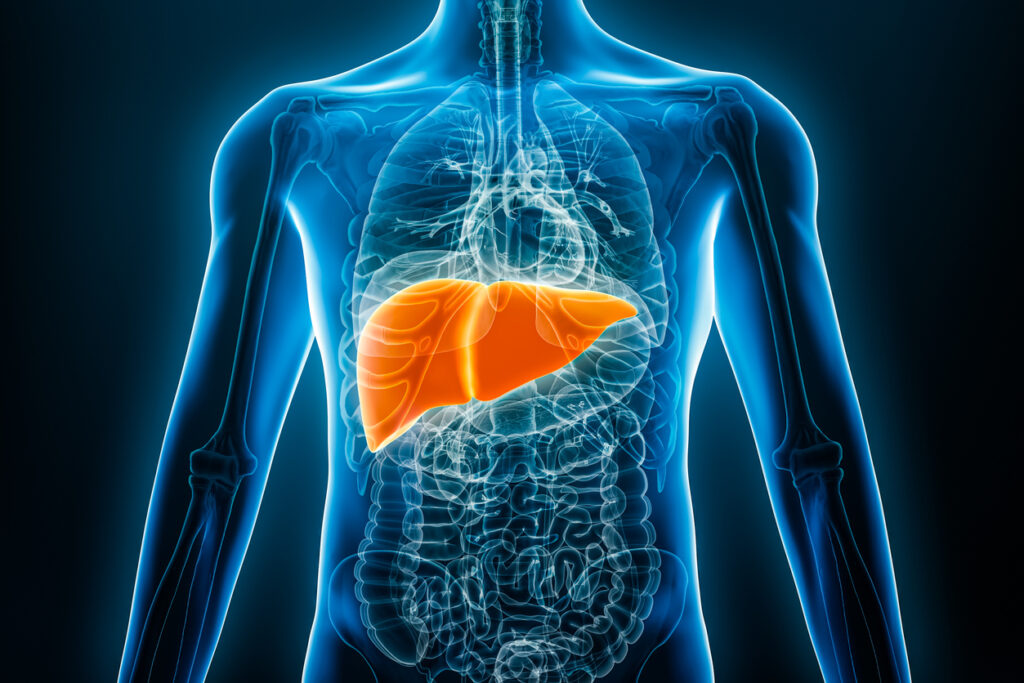
Glyphosate, the world’s most widely used herbicide, may significantly raise the risk of an increasingly common chronic liver disease—even at low exposure levels, according to a new review of more than 40 scientific studies published over the past 17 years.
It found a growing body of research links exposure to glyphosate (GLY)—and the commercial herbicides that contain it—to negative health outcomes for metabolic dysfunction-associated steatotic liver disease (MASLD).
Harmful impacts to the liver include inflammation, oxidative stress, and scarring (fibrosis), all markers of MASLD, according to the review published this week [April 28, 2025] in Environmental Toxicology and Pharmacology. Even small increases in exposure may have significant health impacts over time, especially for people with other risk factors for liver disease, the researchers say.
They investigated three types of studies: animal, cell, and human. In humans, higher urinary levels of glyphosate are linked to a higher risk of fat buildup in the liver, liver scarring, and more liver enzymes in the blood, indicating injury and inflammation.
Key findings show:
- People with higher glyphosate levels in their urine also had higher fatty liver index (FLI) scores. The strongest effects were seen in women aged 40 to 60 with a history of borderline diabetes.
- Individuals with nonalcoholic steatohepatitis (NASH), a serious type of fatty liver disease, had higher levels of glyphosate and its breakdown product (aminomethylphosphonic acid, or AMPA) in their bodies than people without the disease. Those with more advanced liver scarring also showed higher levels of glyphosate in their bodies.
- In a cross-sectional study looking at glyphosate and multiple adverse outcomes, groups with higher urine levels of glyphosate had a greater proportion of individuals with excessive fat buildup in the liver, type 2 diabetes, high blood pressure, cardiovascular diseases, chronic kidney disease, and obesity.
- In a long-term study of childhood exposure, youth with a twofold increase in AMPA between ages 5 and 18 were more likely to develop liver damage and metabolic syndrome at age 18. Children who lived near farms where glyphosate was used also faced a higher risk of developing metabolic problems later in life.
The researchers also report:
- Animal studies suggest glyphosate and GBHs trigger liver inflammation, scarring, fat buildup, and oxidative stress—key markers of MASLD.
- Cell studies in labs confirm these findings, showing that glyphosate can interfere with fat metabolism and trigger oxidative stress and inflammation.
“Although these studies are in their early stages and primarily focus on U.S. data, they undeniably highlight a significant potential relationship between [glyphosate and MASLD-related health issues],” say the authors, adding that “this compelling evidence” demands further investigation.
Soaring rates of chronic liver disease match glyphosate rise
Formerly known as non-alcoholic fatty liver disease, MASLD is a group of liver diseases that occur when fat builds up in the liver. It can eventually lead to inflammation in the liver (hepatitis) and has also been shown to increase the risk of developing certain types of cancer and diabetes in those who don’t already have the disease, a recent study shows. People with MASLD are also at higher risk of cardiovascular disease, advanced scarring (cirrhosis), and liver failure.
Glyphosate (GLY), now manufactured and sold in hundreds of products, is a broad-spectrum herbicide that was patented by Monsanto (now owned by Bayer). Recent studies suggest its association with cancer, metabolic disorders, endocrine disruption and infertility, Alzheimer’s and Parkinson’s diseases, and psychological disorders.
Rates of MASLD and glyphosate use have surged in parallel with each other over the past three decades, statistics show. More than one-third of people worldwide have MASLD, whose prevalence has increased by 50%. In that same time, total herbicide use increased by roughly 280%, largely driven by crops genetically modified (GM) to tolerate glyphosate, resulting in “continuous human exposure.”
Current exposure estimates suggest that glyphosate—deemed a probable human carcinogen in 2015 by the International Agency for Research on Cancer—is present in about 60% of U.S. vegetables and in the urine of people worldwide, including those with no work-related exposure.
In addition, areas of high pesticide use also tend to correlate with high rates of MASLD in people, studies have shown, though most research is centered on U.S. populations. In Latin America, for instance, where the disease is more prevalent than anywhere else in the world, pesticide use per capita is also the highest globally, the reviewers say.
“This trend underscores the urgent need for further investigation into the relationship between [glyphosate] and these health issues,” they say.
“Compelling evidence” demands further investigation
Given the widespread use of glyphosate and growing evidence of its possible links to liver and metabolic disease, the researchers say it’s time to expand research to more countries and re-evaluate safety standards for all commercial herbicide and pesticide products like Roundup that contain the chemical.
A study published earlier this year indicated that maternal exposure to glyphosate reduced the average birth weight of babies and duration of pregnancy (gestational length) in the rural U.S., where it is most prevalent. And another study [April 2025] recently suggested that glyphosate may even disrupt the body’s internal clock, leading to problems with blood sugar and fat metabolism.
There’s also an “urgent need” for regulatory agencies to assess the effects of full commercial formulations like GBHs, which consistently demonstrate greater toxicity than pure glyphosate, the researchers say.
People are also in contact with glyphosate and other pesticide mixtures through water and food, the researchers note. Future studies should consider these potential “cocktail effects” on public health, they say.
To help limit your exposure to pesticides, choose organic foods when you can and use organic products in your own garden.
Reference
Riechelman-Casarin L, Valente LC, Otton R, Barbisan LF, Romualdo GR. Are glyphosate or glyphosate-based herbicides linked to Metabolic dysfunction-associated steatotic liver disease (MASLD)? The weight of current evidence. Environmental Toxicology and Pharmacology. Published online April 2025:104705. doi:10.1016/j.etap.2025.104705









